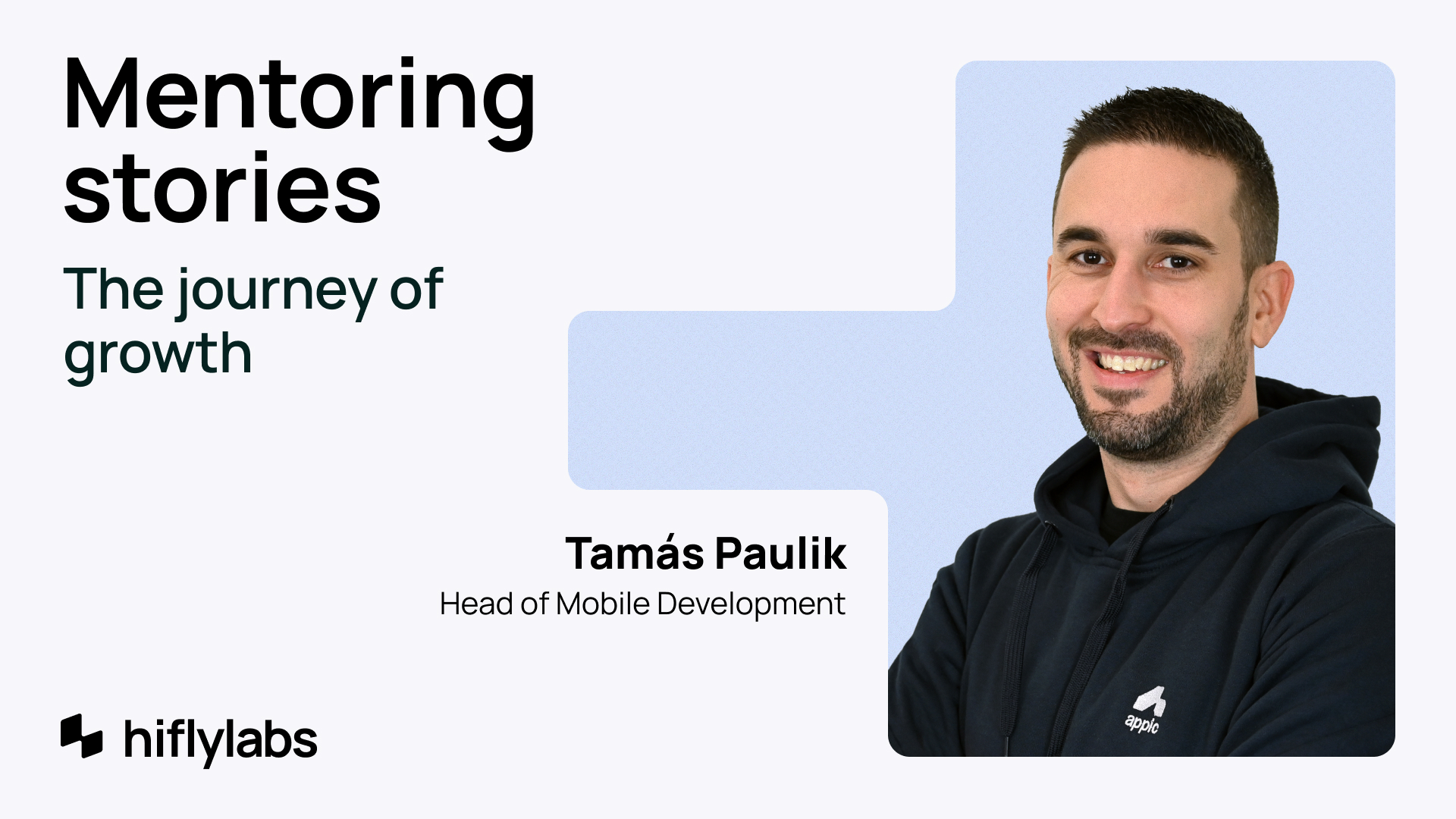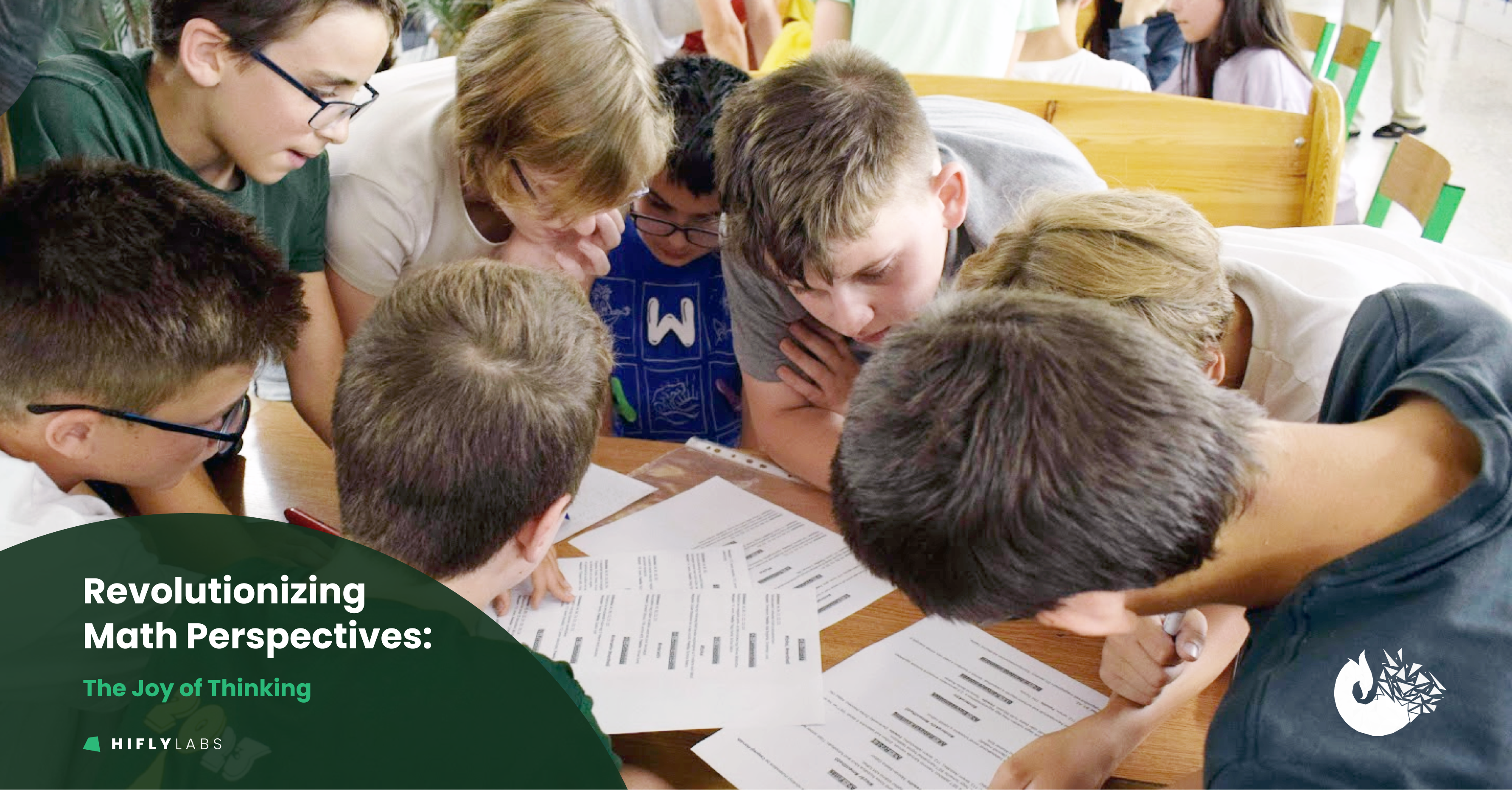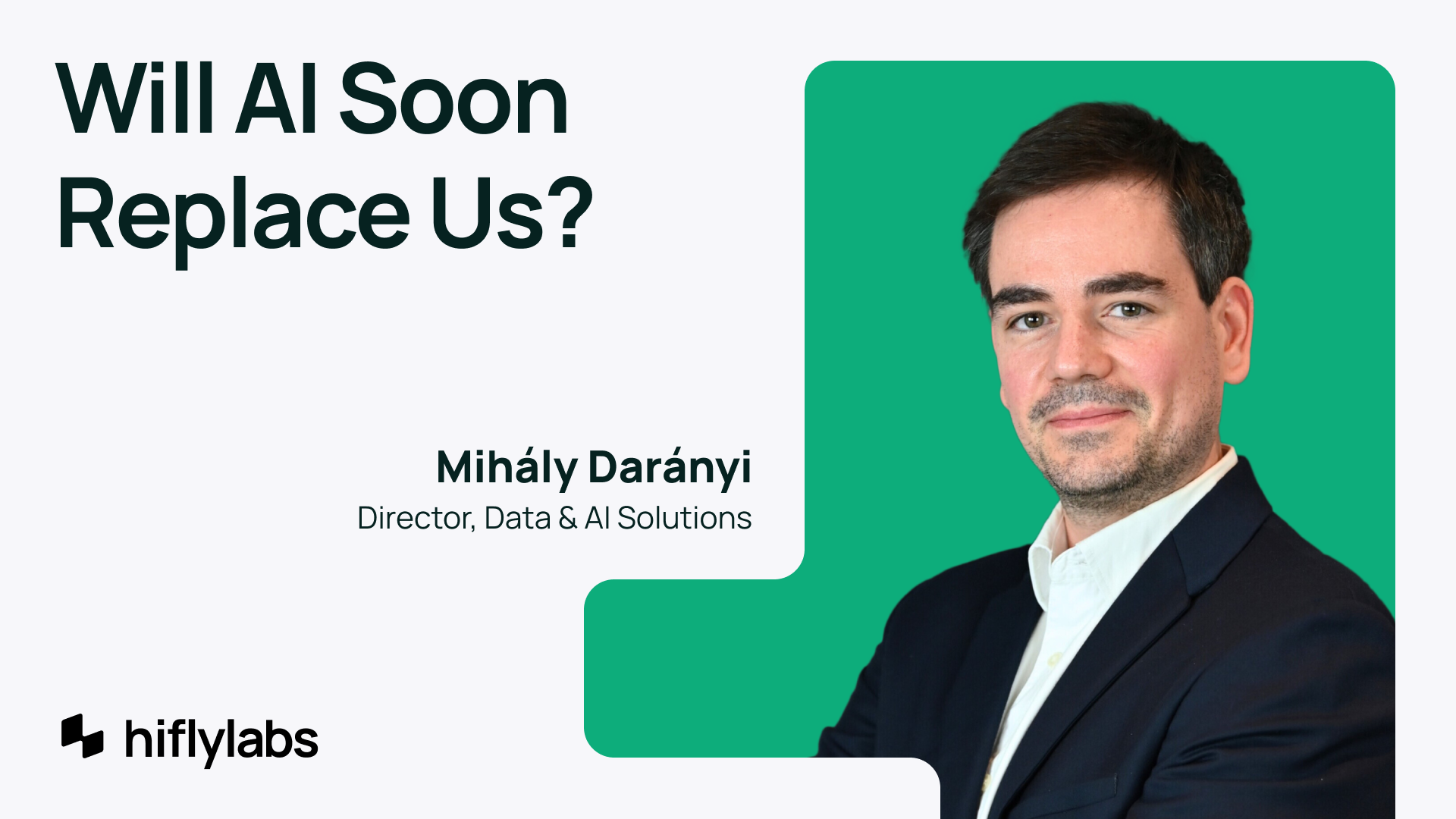At Hiflylabs, we're on a mission to demystify math, proving it's not the spooky bogeyman of our childhood nightmares. Instead, it's a game-changing tool, unlocking the potential of data and technology. The Joy of Thinking Foundation ( A Gondolkodás Öröme Alapítvány) has been actively spearheading this mathematical revolution since 1988.
Following a long-standing partnership, Hiflylabs is set to make a notable impact in 2024 by supporting ninth-grade students starting their Flying School journey in the spring. We recently sat down for an interview with Péter Juhász and Gábor Szűcs, representatives of the foundation, to unravel their journey and future plans.
How did your Foundation come to be and what was the beginning like?
Péter Juhász: The foundation was officially created in 2014 by Lajos Pósa, renowned mathematician and teacher. However, the groundwork was laid much earlier, with the first math camp in 1988, led by Lajos Pósa for 25 years. In 2024 I organized the first MaMuT (‘Camp of Mathematical Amusements’) camp. Both lacked organizational structure, all we had was more and more helpful volunteers each year. This made things difficult after a while. Creating a foundation made running events and finding sponsors much easier.
What kind of activities does the Foundation organize?
Gábor Szűcs: We launched various activities over the years, but at their core they’re all about teaching with a focus on discovery learning. Imagine around 40 weekend camps a year, including the previously mentioned ‘Pósa-camps’, alongside specialized IT camps,
math camps only for girls and three summer camps. There are single-day activities in Budapest and in the countryside too, like our mini-camps for 6th graders and ‘Flying School’ (Repülő Iskola) events for 9th graders. Additionally, we host a nationwide team-based math competition, and from time to time, we organize events tailored for teachers, encompassing training sessions and conferences.
What is the goal of ‘Flying School’ (Repülő Iskola)?
Gábor Szűcs: Talent management has a rich history in Hungary. Joining these organizations (like schools specialized in math, various competitions, camps, KöMaL) ensures high quality. However, several schools are not aware of these opportunities and can’t utilize them.
As part of our ‘Flying School’ initiative, we seek out these schools to organize intro sessions for 9th grade students, hoping to showcase why we believe that the science of math is beautiful and exciting. Additionally, we wish to offer something in the long run for the students interested in what we do: they can join a 2.5-year-long program to study math in one of the country’s leading colleges for advanced studies (ELTE Eötvös József Collegium) for one weekday every month.
How many schools have you partnered with for the spring of 2024?
Gábor Szűcs: The activities will start in the spring, and as such, students are still applying, it is hard to say an exact number just yet. Recently we had applications come in from all over the country, including Pécs, Budapest or Sárospatak. Around 1800 students participate in our intro sessions, and we expect 80-100 applicants from 30-40 schools to join us for the spring season.
Moving on to a slightly broader subject and the most important developments in math education in the past decade. Science content creators have boomed in popularity recently. Has this impacted the number of students joining your events?
Gábor Szűcs: Students sometimes come up to us looking to learn more about math, having already acquired a strong foundation from YouTube. For now, this is not a major quantitative boom, but they clearly enjoy learning from video content.
How do math students utilize new digital tools such as AI?
Péter Juhász: When ChatGPT first appeared, some of them showed us its solutions for various problems during ‘Flying School’ events, however, all of these turned out to be incorrect. These days they rarely ever use ChatGPT, however, Wolfram|Alpha is a well-known and popular tool that often helps them solve different subtasks. We know of some of our alumni working on such tools, and there are some who are researching AI-related threats.
Do you feel any impact of AI in knowledge sharing and talent management? What is the foundation’s view on this?
Péter Juhász: For now, this is unclear for everyone including us, but everyone is looking to find out. An international “competition” offers a cash prize for the creator of the first AI to win a gold medal in the International Mathematical Olympiad. We know of efforts to create an AI to generate math problems, and their results in coming up with geometric exercises are getting pretty good.
We also feed some of our more difficult problems to ChatGPT, however, it cannot solve them just yet. Students use the software when studying, but for now we do not see AI taking over meaningful tasks such as coming up with innovative math ideas. In our camps and events we focus on personal connections, which is an important part of our teaching principles, so AI has no impact on this facet either.
With a history spanning decades, the foundation’s alumni are all over the world. What direction did their careers take?
Péter Juhász: That’s a wide spectrum for sure. Several of our alumni work with mathematics and software development. A while ago teaching was popular too, but that is not the case anymore, unfortunately. Many lend their expertise to investment firms, banks, and insurance companies, but some people went on towards biology, chemistry, and medicine. We even have an archeologist, Olympic champion fencer and a hockey player on the national team among our previous students. To our greatest joy there are some who work at the Foundation (as well).
Thank you both for the insight and the interview! How can people find out more about your activities and apply to ‘Flying School’?
Those looking to find out more about the foundation should head over to our website and our Facebook page, where we announce details of upcoming events when they are available. More details about ‘Flying School’ can be found on the event’s website.




